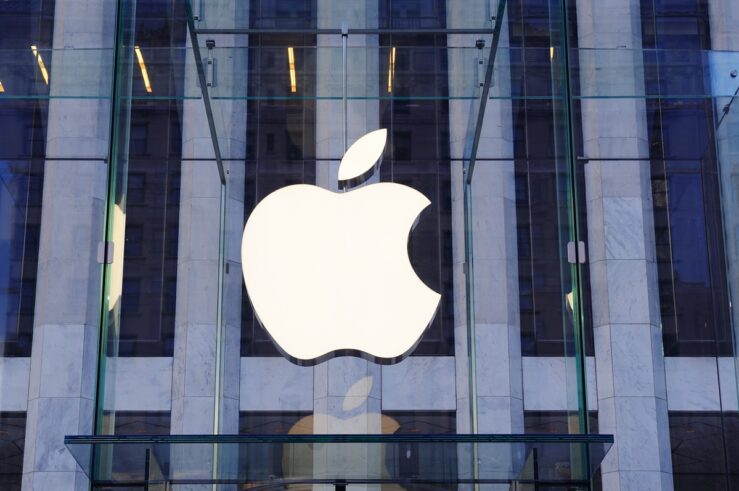Net Neutrality and the Paradox of Private Censorship
With yet another net-neutrality order set to take effect (the link is to the draft version circulated before today’s Federal Communications Commission vote; the final version is expected to be published in a few weeks) and to impose common-carriage requirements on broadband internet-access service (BIAS) providers, it is worth considering how the question of whether ... Net Neutrality and the Paradox of Private Censorship
Steeling to Block a Merger
In an April 17 address to United Steelworkers in Pittsburgh, President Joe Biden vowed that his administration would “thwart the acquisition of U.S. Steel by a Japanese company,” Nippon Steel, telling the assembled union members that U.S. Steel “has been an iconic American company for more than a century and it should remain totally American.” ... Steeling to Block a Merger
DOJ’s Case Against Apple: Beware of Forcing ‘Efficiencies’
The U.S. Justice Department’s (DOJ) recent complaint charging Apple with monopolizing smartphone markets is, according to Assistant U.S. Attorney General Jonathan Kanter, intended as a contribution to the agency’s “enduring legacy of taking on the biggest and toughest monopolies in history.” Unfortunately, the case has fundamental weaknesses in its assessment of both Apple’s alleged monopoly ... DOJ’s Case Against Apple: Beware of Forcing ‘Efficiencies’
Confronting the DMA’s Shaky Suppositions
It’s easy for politicians to make unrealistic promises. Indeed, without a healthy skepticism on the part of the public, they can grow like weeds. In the world of digital policy, the European Union’s Digital Markets Act (DMA) has proven fertile ground for just such promises. We’ve been told that large digital platforms are the source ... Confronting the DMA’s Shaky Suppositions
The Missing Element in the Google Case
Through laudable competition on the merits, Google achieved a usage share of nearly 90% in “general search services.” About a decade later, the government alleged that Google had maintained its dominant share through exclusionary practices violating Section 2 of the Sherman Antitrust Act. The case was tried in U.S. District Court in Washington, D.C. last ... The Missing Element in the Google Case
Kroger/Albertsons: Is Labor Bargaining Power an Antitrust Harm?
The Federal Trade Commission’s (FTC) recent complaint challenging the proposed merger of the supermarkets Kroger Co. and Albertsons Companies Inc. has important implications for antitrust enforcement in labor markets. Central to the FTC’s case is how it chooses to define the relevant markets, and particularly the commission’s focus on unionized grocery workers. The complaint alleges ... Kroger/Albertsons: Is Labor Bargaining Power an Antitrust Harm?
India Should Question Europe’s Digital-Regulation Strategy
A year after it was created by the Government of India’s Ministry of Corporate Affairs to examine the need for a separate law on competition in digital markets, India’s Committee on Digital Competition Law (CDCL) in February both published its report recommending adoption of such rules and submitted the draft Digital Competition Act (DCA), which ... India Should Question Europe’s Digital-Regulation Strategy
The Future of the DMA: Judge Dredd or Juror 8?
When it was passed into law, the European Union’s Digital Markets Act (DMA) was heralded by supporters as a key step toward fairness and contestability in online markets. It has unfortunately become increasingly clear that reality might not live up to those expectations. Indeed, there is mounting evidence that European consumers’ online experiences have been ... The Future of the DMA: Judge Dredd or Juror 8?
Does the DMA Let Gatekeepers Protect Data Privacy and Security?
It’s been an eventful two weeks for those following the story of the European Union’s implementation of the Digital Markets Act. On April 18, the European Commission began a series of workshops with the companies designated as “gatekeepers” under the DMA: Apple, Meta, Alphabet, Amazon, ByteDance, and Microsoft. And even as those workshops were still ... Does the DMA Let Gatekeepers Protect Data Privacy and Security?
Capital Confusion at the New York Times
In a recent guest essay for The New York Times, Aaron Klein of the Brookings Institution claims that the merger between Capital One and Discover would “keep intact the broken and predatory system in which credit card companies profit handsomely by rewarding our richest Americans and advantaging the biggest corporations.” That’s quite an indictment! Fortunately, Klein also ... Capital Confusion at the New York Times
US v. Apple Lawsuit Has Big Implications for Competition and Innovation
The lawsuit filed yesterday by the U.S. Justice Department (DOJ) against Apple for monopolization of the U.S. smartphone market (joined by 15 states and the District of Columbia) has big implications for American competition and innovation. At the heart of the complaint is the DOJ’s assertion that: [Apple’s] anticompetitive acts include, but are not limited ... US v. Apple Lawsuit Has Big Implications for Competition and Innovation
Murthy Oral Arguments: Standing, Coercion, and the Difficulty of Stopping Backdoor Government Censorship
With Monday’s oral arguments in Murthy v. Missouri, we now have more of a feel for how the U.S. Supreme Court appears to be considering the issues of social-media censorship—in this case, done allegedly at the behest of federal officials. In the International Center for Law & Economics’ (ICLE) amicus brief in the case, we ... Murthy Oral Arguments: Standing, Coercion, and the Difficulty of Stopping Backdoor Government Censorship
















